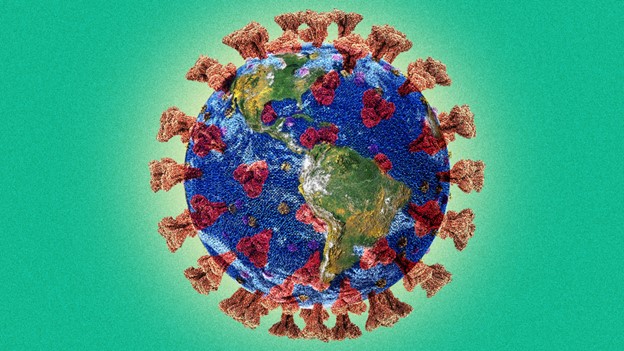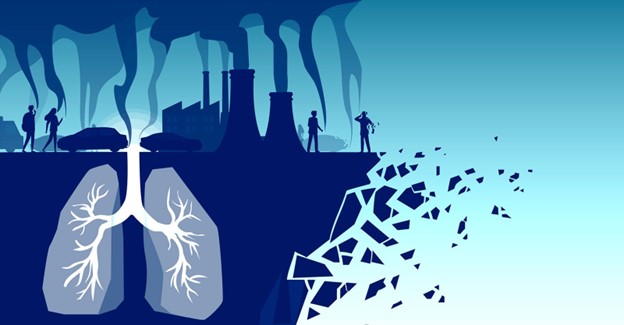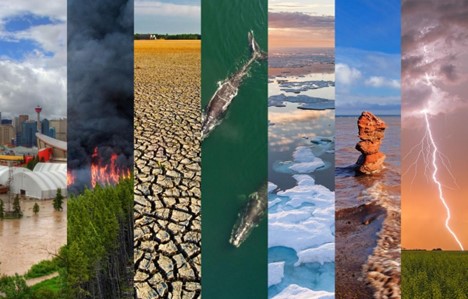Climate change is no longer a distant threat; it is a present reality affecting various aspects of our lives, including public health. The intricate relationship between climate change and public health is becoming increasingly evident, with numerous studies highlighting the profound implications. This article delves into the multifaceted impact of climate change on public health, emphasizing the urgent need for comprehensive strategies to mitigate these effects.
The Nexus Between Climate Change and Public Health
Climate change refers to long-term alterations in temperature, precipitation, and other atmospheric conditions on Earth. These changes, primarily driven by human activities such as burning fossil fuels and deforestation, have far-reaching consequences for public health. The World Health Organization (WHO) has identified climate change as one of the greatest health challenges of the 21st century.
Rising Temperatures and Heat-Related Illnesses
One of the most direct effects of climate change is the increase in global temperatures. Heatwaves are becoming more frequent and intense, posing significant risks to public health. High temperatures can lead to heat exhaustion, heatstroke, and other heat-related illnesses. Vulnerable populations, including the elderly, children, and those with pre-existing health conditions, are particularly at risk.
Heatwaves can also exacerbate chronic conditions such as cardiovascular and respiratory diseases. For instance, higher temperatures can increase ozone levels, leading to poor air quality and respiratory problems. Additionally, extreme heat can strain healthcare systems, as hospitals and clinics face an influx of patients during heatwaves.
Spread of Infectious Diseases
Climate change is altering the distribution and prevalence of infectious diseases. Warmer temperatures and changing precipitation patterns create favorable conditions for the proliferation of disease vectors such as mosquitoes and ticks. Diseases such as malaria, dengue fever, and Lyme disease are expanding into new regions, posing new public health challenges.

For example, the Aedes aegypti mosquito, a primary vector for dengue fever, thrives in warm, humid environments. As global temperatures rise, the geographical range of this mosquito is expanding, increasing the risk of dengue outbreaks in previously unaffected areas. Similarly, the spread of Lyme disease, transmitted by ticks, is influenced by climate change, with cases reported in regions where the disease was previously rare.
Impact on Food and Water Security
Climate change significantly impacts food and water security, which in turn affects public health. Changes in temperature and precipitation patterns can disrupt agricultural productivity, leading to food shortages and malnutrition. Extreme weather events such as droughts and floods can destroy crops, reduce food availability, and increase food prices, disproportionately affecting low-income populations.
Water security is also threatened by climate change. Altered precipitation patterns and increased evaporation rates can lead to water scarcity, affecting access to clean drinking water and sanitation. Contaminated water sources can result in waterborne diseases such as cholera and diarrhea, which are major public health concerns, particularly in developing countries.
Mental Health Consequences
The impact of climate change on mental health is an emerging area of concern. Extreme weather events, such as hurricanes, floods, and wildfires, can lead to trauma, stress, and anxiety among affected populations. The loss of homes, livelihoods, and loved ones can have long-lasting psychological effects.
Moreover, the gradual impacts of climate change, such as rising sea levels and prolonged droughts, can contribute to a sense of helplessness and despair. Climate-related displacement and migration can also lead to social and psychological stress, as individuals and communities are forced to adapt to new environments and cope with the loss of cultural and social ties.
Air Quality and Respiratory Health
Climate change affects air quality, with significant implications for respiratory health. Increased temperatures and changing weather patterns can lead to higher concentrations of air pollutants such as ground-level ozone and particulate matter. These pollutants can exacerbate respiratory conditions such as asthma and chronic obstructive pulmonary disease (COPD).

Wildfires, which are becoming more frequent and severe due to climate change, also contribute to poor air quality. The smoke and particulate matter from wildfires can travel long distances, affecting the respiratory health of populations far from the source of the fire. Vulnerable groups, including children, the elderly, and individuals with pre-existing respiratory conditions, are particularly at risk.
Strategies for Mitigating the Impact
Addressing the impact of climate change on public health requires a multifaceted approach, involving mitigation and adaptation strategies. Governments, healthcare systems, and communities must work together to develop and implement effective measures.
Strengthening Public Health Infrastructure
Investing in robust public health infrastructure is crucial for mitigating the impact of climate change on health. This includes improving healthcare facilities, enhancing surveillance systems for infectious diseases, and providing training for healthcare professionals to respond to climate-related health issues.
Promoting Climate-Resilient Communities
Building climate-resilient communities involves implementing policies and practices that reduce vulnerability to climate change. This includes improving urban planning to reduce heat island effects, enhancing water management systems to ensure access to clean water, and promoting sustainable agricultural practices to ensure food security.
Raising Awareness and Education
Public awareness and education are essential components of any strategy to address the health impacts of climate change. Educating communities about the health risks associated with climate change and promoting behaviors that reduce exposure to these risks can empower individuals to protect their health.
Reducing Greenhouse Gas Emissions
Mitigating climate change by reducing greenhouse gas emissions is a fundamental long-term strategy for protecting public health. Transitioning to renewable energy sources, improving energy efficiency, and promoting sustainable transportation options are critical steps in reducing the global carbon footprint.
Enhancing Research and Monitoring
Continued research and monitoring are essential for understanding the evolving relationship between climate change and public health. This includes studying the health impacts of climate change, identifying vulnerable populations, and developing evidence-based interventions to mitigate these impacts.
Conclusion
The impact of climate change on public health is a growing concern that demands immediate and sustained action. As the global climate continues to change, the health risks associated with rising temperatures, infectious diseases, food and water insecurity, mental health, and air quality will become more pronounced. Addressing these challenges requires a comprehensive approach that includes strengthening public health infrastructure, promoting climate-resilient communities, raising awareness, reducing greenhouse gas emissions, and enhancing research and monitoring.
By taking proactive measures to mitigate the health impacts of climate change, we can protect the well-being of current and future generations. The time to act is now, as the health of our planet and its inhabitants is inextricably linked.




